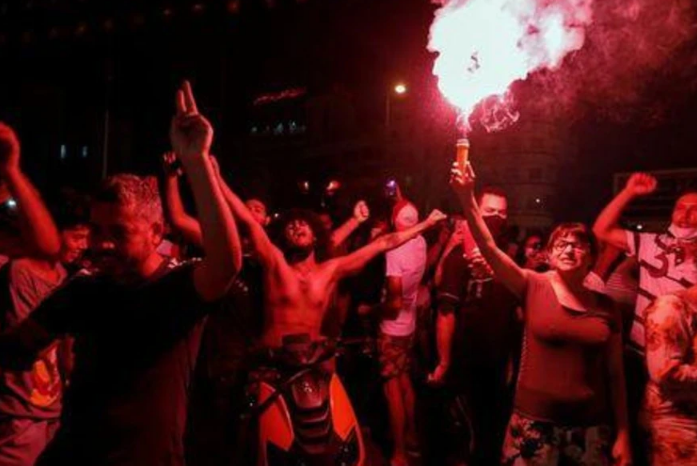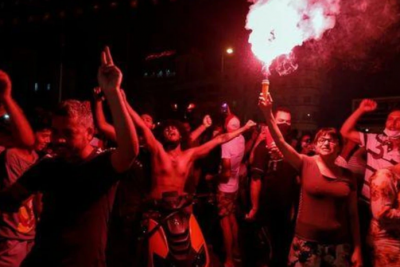Tunisian President Kais Saied dismissed the government and froze parliamentary work on Sunday, escalating the political crisis and prompting large crowds to gather in the capital in support of him, though his opponents described the measures as a coup. The president stated that he will assume leadership of the executive authority with the help of a new Prime Minister, marking the biggest challenge to the 2014 constitution, which distributed powers among the president, the prime minister, and parliament.
Immediately, crowds of people flooded the capital and other cities, chanting and honking car horns in scenes reminiscent of the revolution that sparked the Arab Spring protests that shook the Middle East. However, it remained unclear how much support Saied's measures would receive against the fragile government and the divided parliament, and Saied warned against any violent backlash. He stated in a televised address, "I warn many who are contemplating resorting to weapons... Those who fire a bullet will be met by the armed forces with bullets."
Witnesses reported that military vehicles surrounded the parliament building hours after Saied's announcement, as people gathered nearby, chanting and singing the national anthem. Tunisians rose up in a revolution in 2011 against decades of authoritarian rule to establish a democratic system that granted new freedoms but did not contribute to economic prosperity. Years of paralysis, corruption, declining state services, and rising unemployment had already left many Tunisians frustrated with the political system before the COVID-19 pandemic battered the economy last year and infection rates soared this summer.
Large protests erupted, called for by activists on social media but not supported by any major political parties, on Sunday, with much of the anger directed at the Ennahda Islamic Party, the largest in parliament. The Speaker of the Tunisian Parliament, Rached Ghannouchi, who is also the head of the moderate Ennahda Party, accused President Saied of "a coup against the revolution and the constitution" in a phone call with Reuters. Ghannouchi stated, "We believe that the institutions are still intact, and the Ennahda supporters and the Tunisian people will defend the revolution," raising speculation about potential confrontations between Ennahda supporters and the president.
Former President Moncef Marzouki joined Ghannouchi's calls in describing Saied's move as a coup. In a video statement, Marzouki declared, "This is a coup, and I condemn the coup, and it cannot be accepted. I urge the Tunisian people to be aware of what appears to be the beginning of a slippery slide into a worse situation."
Crowds of tens of thousands remained on the streets of Tunis and other cities, where some set off fireworks for hours after Saied's announcement, as helicopters flew overhead. Lameya Meftehi, celebrating in downtown Tunis, said people were relieved from the parliament and the government, adding, "This is the happiest moment since the revolution."
In his statement, the president said that the actions taken were in accordance with Article 80 of the constitution and also pointed to the article that suspends the immunity of parliament members. He said, "We did not want to resort to these measures despite meeting the constitutional conditions, but in contrast, many are characterized by hypocrisy, treachery, and encroachment on the rights of the people."
The president and the parliament were elected in separate popular elections in 2019, while Prime Minister Hicham Mechichi took office last summer to replace another government that lasted only briefly. Saied, an independent without a political party behind him, vowed to reform a complex political system plagued by corruption. Meanwhile, the parliamentary elections resulted in a divided parliament where no party held more than a quarter of the seats.




